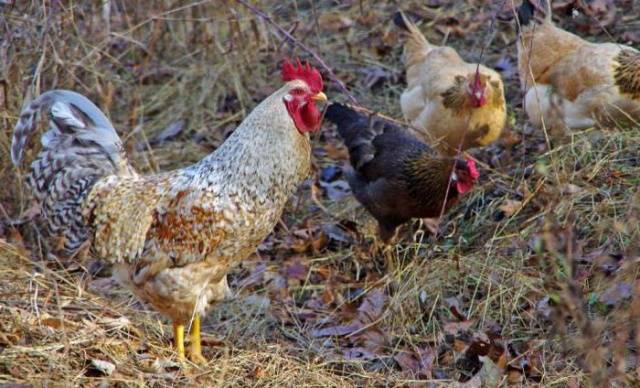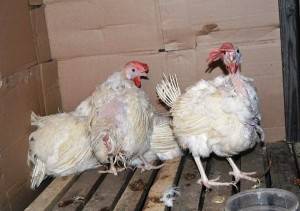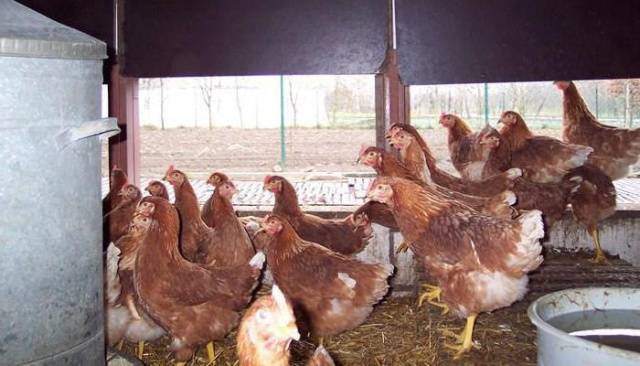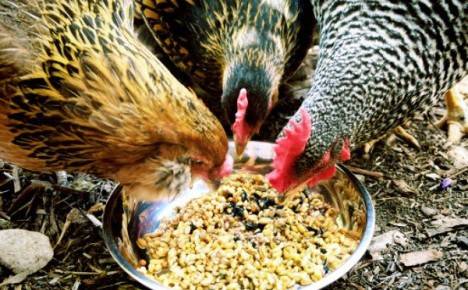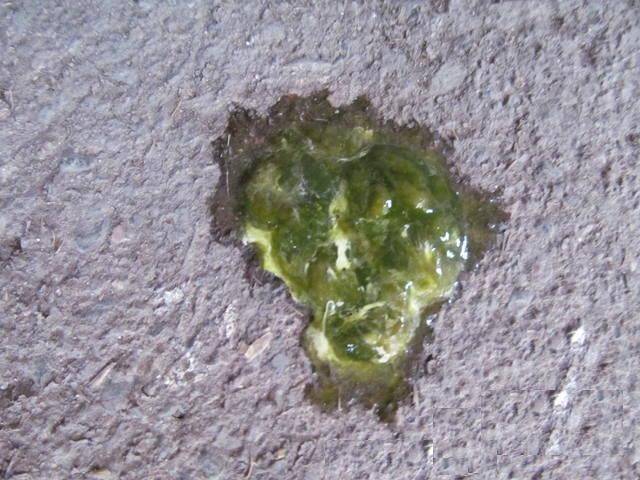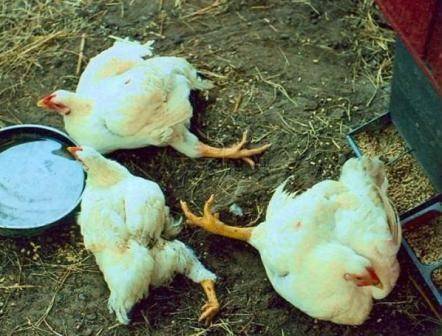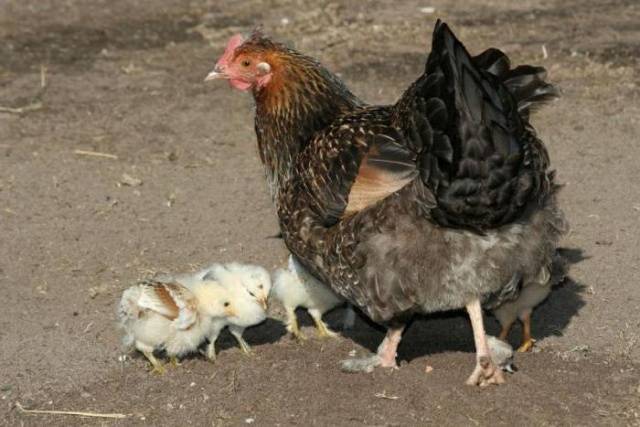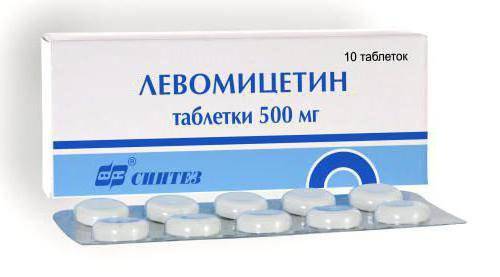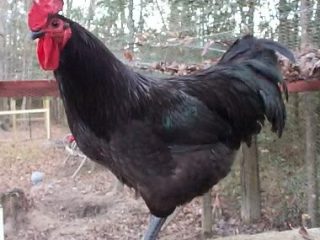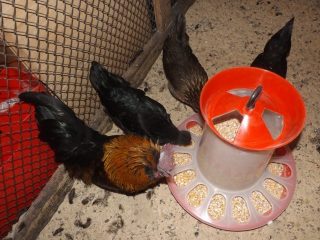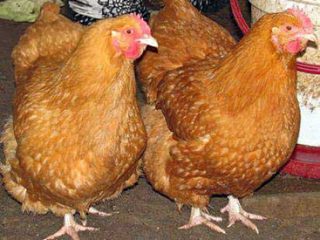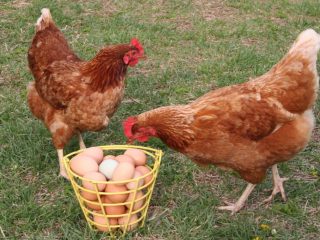Content
Poultry farmers who are seriously involved in farming closely monitor the condition of their pets. One of the important indicators is the quality of the litter. Diarrhea in chickens, regardless of consistency and color, should be alarming. Experienced owners are able to determine exactly from the droppings what the birds are sick with and take measures to improve the health of the herd. When the first symptoms appear, it is necessary to treat chickens.
Why do hens get sick?
Liquid bowel movements are commonly referred to as diarrhea. There can be many reasons for its occurrence. In some cases, this is due to poor quality feed, in others it is caused by serious infectious diseases. If in doubt, it is best to seek the help of specialists and do tests. After that, you can already decide how to treat your pets.
Diarrhea in chickens is a dangerous disease that leads to dehydration, intoxication, but, most importantly, reduces the protective functions of the body. If you do not give special drugs to chickens, then the whole flock of birds may die as a result.
How to rate a litter
A good owner will never wait for the chickens to vilify. He monitors poultry feces and litter conditions on a daily basis.
Discharge from chickens of two types: day and night droppings:
- During the day, the feces of healthy adult hens and chicks look like elongated dark brown pellets. They do not stick to the hand, they roll like plasticine. The presence of a white deposit is quite natural. These are uric acid salts. If the shape of the feces has changed, then the reason may be hypothermia or poor quality feed.
- Nighttime bowel movements are called cecal. They are thin, brown, but not sticky. This kind of feces from a chicken comes out in the morning. Discharge from a healthy bird should not contain gas bubbles, mucus, and blood secretions.
The easiest way to control the presence of diarrhea in a laying hen is that if the eggs are clean, the digestive system is working normally.
How to recognize diarrhea
Diarrhea in chickens can be recognized by its characteristic features. First of all, you need to monitor the litter. If you have runny bowel movements or if the color of your stool changes, you need to be concerned.
After diarrhea, the chicken will notice dirt on the cloaca. In addition, diarrhea leads to inflammation of the cloaca. In laying hens, feces and sometimes blood clots stick to the eggs. At the first sign of sick birds are removed from the general herd to a separate room for observation and treatment. If measures are not taken in time, more than one bird will die.
You can understand that something is wrong with the chicken by behavior. The presence of diarrhea in laying hens leads to lethargy, the birds are thirsty, but they refuse food.
Non-infectious causes
If a chicken has diarrhea, then first you need to find out why it has arisen.
Hypothermia
If the air temperature drops sharply, then the bird assimilates food worse. Because of this, a lot of fluid appears in the stool, or, as experts say, it becomes watery. But the color remains natural. In this case, no treatment is required.
Shock from a change of place
Any movement of a chicken to a new place of residence is associated with a stressful condition, and it negatively affects the digestive process. In a chicken, diarrhea goes away quickly after it adapts to new conditions.
Power change
When chickens are switched to a new feed, they experience stress causing diarrhea. What to do in this case? First, they give the old food again, and gradually transfer to the new one so that the chicken's stomach gets used to it.
Dirty water
If nipple drinkers are installed in the hen house, then the chicken does not have diarrhea if it is not infected. When the water is in the common drinker and the birds get into it, they can introduce pathogenic microorganisms. In this case, the disease of chickens can become massive, it will be difficult to stop it. Give poultry disinfected water and change it twice a day.
Poisoning
Diarrhea in chickens can provoke unsuitable food. It is impossible to get rid of poisoning only by replacing the feed. How to treat sick chickens in such a situation? For the treatment of diarrhea, it is necessary to drink antibacterial drugs for all birds (both sick and healthy for prevention). They can be added to the mash.
Diarrhea caused by infections
Diarrhea often leads to discoloration of the droppings, and this is already dangerous. Stool color varies and is most commonly caused by infection.
White diarrhea
This color of stool most often appears in pullorosis caused by Salmonella. In poultry, not only the intestines are affected, but also the ovaries. White diarrhea seen in chickens, is capable of infecting all organs, which leads to death. Chickens are infected from sick individuals through droppings and infected eggs.
Sick chickens can also be identified by external signs:
- the beak is constantly open, breathing is heavy;
- chickens are sluggish, almost do not move, they sit crumpled;
- digestion is impaired;
- the hens stop laying eggs.
Chicks suffering from white diarrhea do not grow well, for the most part stand with their legs wide apart. At the same time, the eyes are tightly closed. It is almost impossible to cure chickens from pullorosis, so they are slaughtered.
Yellow diarrhea
If the birds are kept in unfavorable conditions, or the cause is stress, then they may develop yellow diarrhea. In this case, it is enough to drink the chickens with potassium permanganate and put the room in order.
But if the cause of the yellow diarrhea is an infection, and this is, as a rule, Gumboro disease, then you will have to conduct a study of feces or dead birds. The veterinarian will prescribe the appropriate treatment.
Greens in the droppings
If the contents of the litter are green, then research should be done, perhaps the diarrhea is caused by paterella. If the tests are good, then the reason is non-infectious. Treatment will be prescribed by a doctor with special drugs.
The green color of feces often appears in the first spring months, when the birds are transferred to pasture. Overeating fresh grass can cause green diarrhea. In this case, medications are not required; folk remedies can be dispensed with. For example, to drink sick chickens with a solution of potassium permanganate, an infusion of chamomile or other herbs that have a tanning effect.
Brown diarrhea
Liquid stool of this color is associated only with infection. Most often, chickens get sick in autumn and spring. The cause of infection is litter, food, water.
When a bird starts having brown diarrhea, the following symptoms appear:
- chickens are disheveled;
- they become indifferent to food;
- mucus can be seen in liquid stool;
- birds lose activity, most often they sit in a corner, spreading their wings and closing their eyes;
Typically, brown diarrhea is caused by eimeriosis or coccidiosis. Veterinarians are prescribed for treatment of chickens coccidostatics.Since these diseases are serious, for their prevention, such drugs can be drunk on the rest of the birds in order to prevent the disease of the herd.
Stool with blood
The cause of the appearance of blood in the liquid feces of chickens is coccidiosis. It is caused by the smallest microorganisms coccidia. They affect the digestive system of poultry. Bloody diarrhea most often affects young chicks up to two months of age.
Sick birds for the most part sit, do not approach the feeder. One of the symptoms is the blanching of the scallops. First, blood appears in the stool, and later it turns brown.
Common infections
Disease | Feces color | Cause |
Newcastle disease | Mucus is visible in brown droppings. |
|
Colibacillosis | The stool is yellow, and blood is often visible. | The liver is affected. |
Coccidiosis | The feces are brown or chocolate. | Invasion of intestinal parasites. |
Pasteurellosis | The stool is green with mucus. |
|
Clostridiosis | In black diarrhea, gas bubbles are visible, a fetid odor is noted. |
|
Treatment features
To save chickens from diarrhea, treatment must be started immediately, otherwise the disease can lead to dehydration and death of the bird. At the initial stage of treatment, the cause is established, that is, they find out why the chickens have fed. If the diarrhea is not caused by infections, you can use folk remedies.
Funds from the people
Since poultry has been breeding for a long time, our ancestors invented means to relieve chickens from diarrhea.
So, how to treat:
- As soon as liquid stools, including black ones, were noticed, clay is added to the drinking bowl to the water.
- Boil rice or oats and drink the thick liquid instead of water. Chickens are also given thin oatmeal.
- If there are pomegranate crusts, you can boil them and use them as an astringent, antibacterial agent.
- With green and dark brown diarrhea, it is useful to drink chamomile broth for poultry.
Remedy for diarrhea from the chickens themselves:
Drug treatment
Most often, antibacterial drugs are prescribed to treat diarrhea of various colors caused by infections:
- Biseptol;
- Enrofloxacin and Norfloxacin;
- Tetracycline and Biomycin.
If liquid Levomycetin is used as a medicine, then 4 ml of the drug is dissolved in a liter of boiled water.
In addition to medicine, chickens should be given vitamin complexes during treatment, for example: Trisulfone, Dolink, Gidrotriprim and others. The tablets are dissolved in water and the solution is poured into a drinking bowl. In order to consolidate the results, you cannot do without prebiotics: yogurt, serum, Monosporin, Bifidumbacterin.
Let's summarize
In any case, when choosing drugs for the treatment of poultry, it is better to consult with specialists. They will help you figure out the dosage.
And so that poultry does not get sick, it is necessary to create comfortable conditions for them, observe sanitary standards, and provide them with high-quality feed.
